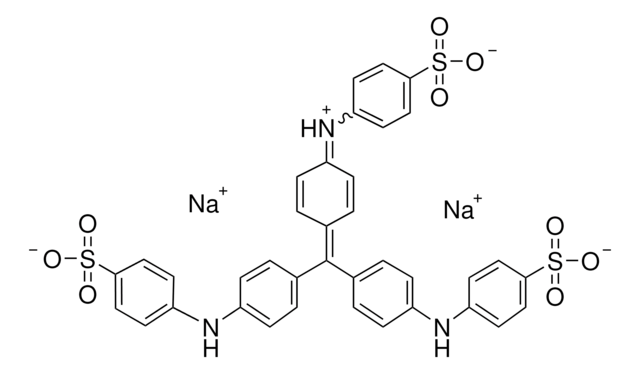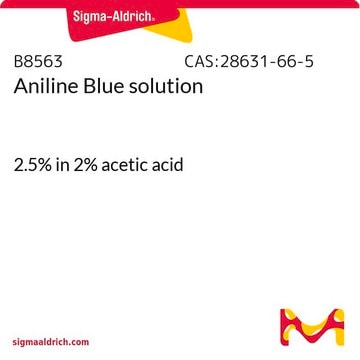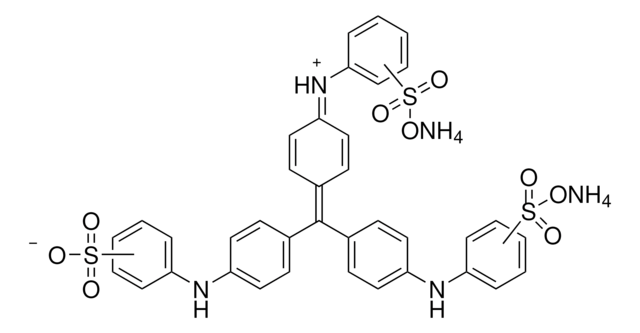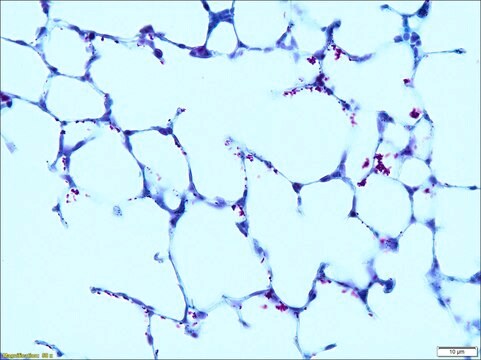95290
Methyl Blue
for microscopy (Bot., Hist.), indicator (pH 9.4-14.0)
Synonym(s):
Acid blue 93, Aniline blue water soluble, Cotton blue, Poirriers blue, Water blue
About This Item
Recommended Products
grade
for microscopy (Bot., Hist.)
indicator (pH 9.4-14.0)
Quality Level
form
powder or crystals
technique(s)
microbe id | staining: suitable
pH
9.4-14
solubility
water: 0.01 g/10 mL, blue to very deep blue
εmax
≥200 at 310-320 nm
≥400 at 595-605 nm
application(s)
diagnostic assay manufacturing
hematology
histology
storage temp.
room temp
SMILES string
[Na+].[Na+].OS(=O)(=O)c1ccc(Nc2ccc(cc2)\C(c3ccc(Nc4ccc(cc4)S([O-])(=O)=O)cc3)=C5/C=CC(\C=C5)=N/c6ccc(cc6)S([O-])(=O)=O)cc1
InChI
1S/C37H29N3O9S3.2Na/c41-50(42,43)34-19-13-31(14-20-34)38-28-7-1-25(2-8-28)37(26-3-9-29(10-4-26)39-32-15-21-35(22-16-32)51(44,45)46)27-5-11-30(12-6-27)40-33-17-23-36(24-18-33)52(47,48)49;;/h1-24,38-39H,(H,41,42,43)(H,44,45,46)(H,47,48,49);;/q;2*+1/p-2
InChI key
MCPLVIGCWWTHFH-UHFFFAOYSA-L
Looking for similar products? Visit Product Comparison Guide
General description
Application
- to stain leaf disks for callose visualization within the cells
- to incubate cells for 4′,6-diamidino-2-phenylindole (DAPI)/septa staining
- as a marker for β-(1-3)-d-glucans or acidic phloroglucinol for the detection of callose and lignin
- in Mann′s stain as it involves a methyl blue-eosin mixture
Storage Class
13 - Non Combustible Solids
wgk_germany
WGK 2
flash_point_f
>572.0 °F - Pensky-Martens closed cup
flash_point_c
> 300 °C - Pensky-Martens closed cup
ppe
dust mask type N95 (US), Eyeshields, Gloves
Choose from one of the most recent versions:
Already Own This Product?
Find documentation for the products that you have recently purchased in the Document Library.
Customers Also Viewed
Our team of scientists has experience in all areas of research including Life Science, Material Science, Chemical Synthesis, Chromatography, Analytical and many others.
Contact Technical Service










